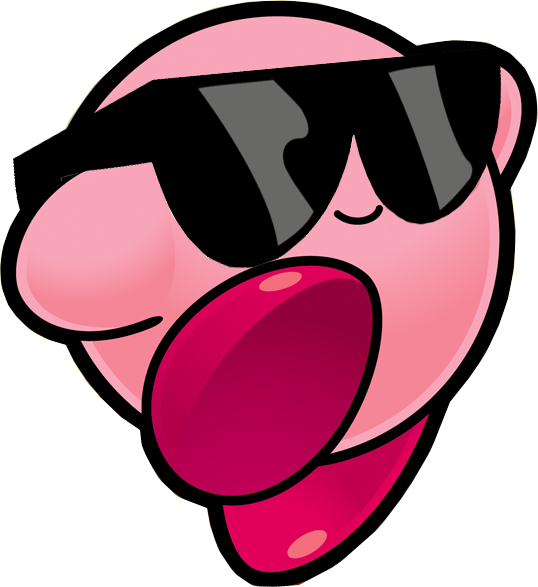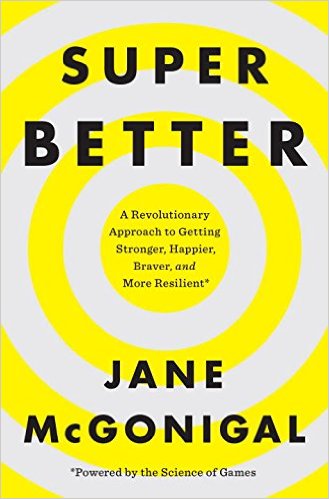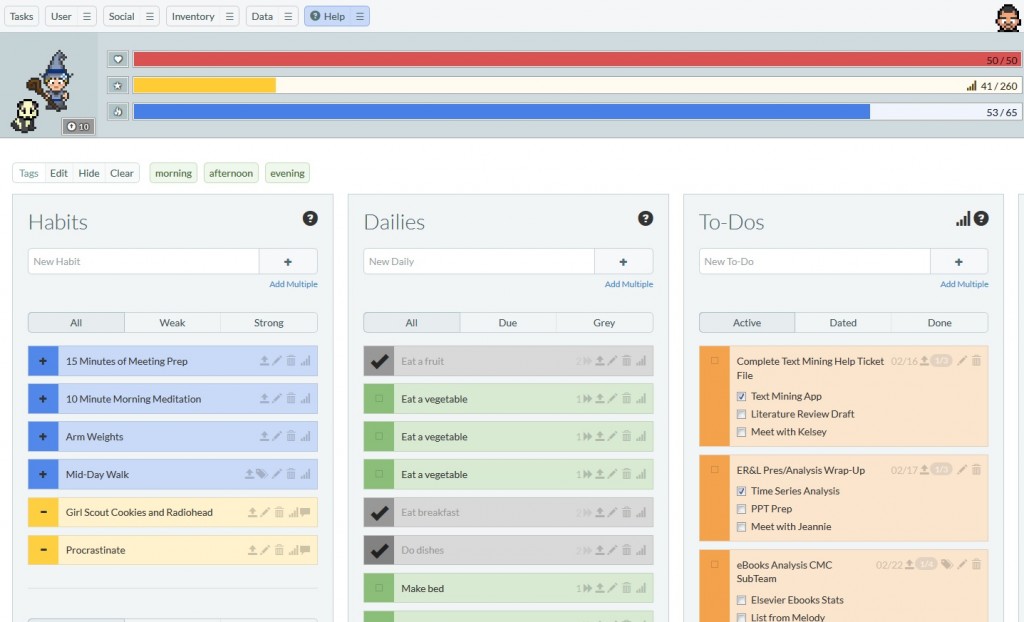
Let me tell you the truth- I didn’t begin to play games until my late twenties. In my youth, I resisted the siren call of Super Nintendo and Sega Genesis. As an adult, I studiously avoided Playstation and XBox. When the Wii came out, I caved. I am very glad I did, because finding games in my twenties proved to be a tremendous stress reducer, community builder, and creative outlet. I cannot imagine completing my MLIS while working full-time and planning my wedding without Super Smash Bros.
It was a time in my life when I really needed to punch something.
In case you are wondering, I specialize as Kirby and I am a crusher. Beyond video games, I like board games (mainly cooperative ones, like Pandemic) and trivia. Lately, I have also been toying with getting into Dungeons & Dragons because what I really need is more hobbies.
More to the point – This isn’t the first time I’ve talked about the value of gamification or my interest in it on the LITA Blog, but this is a first for me in that I am offering gamification as a tool towards a specific professional goal, namely promotion in the academic library.
A quick note- gamification doesn’t necessarily require technology, though I do recommend apps for this process. In writing this blog post, my key aim is to offer academic librarians looking for a natural starting place to apply gamification in their professional lives a recommended way to do so.

In the course of pursuing promotion in an academic library or seeking professional development opportunities in the workplace, it can be easy to feel overwhelmed, isolated, and even paralyzed. What if, instead of binging on Girl Scout cookies and listening to sad Radiohead (this may just be me), we chose to work gamefully? What if we framed promotion as a mission for an epic win, with quests, battles, and rewards along the way?
In her book, SuperBetter: A Revolutionary Approach to Getting Stronger, Happier, Braver, and more Resilient — Powered by the Science of Games (phew), Jane McGonigal boldly posits, “Work ethic is not a moral virtue that can be cultivated simply by wanting to be a better person. It’s actually a biochemical condition that can be fostered, purposefully, through activity that increases dopamine levels in the brain.”
She goes on to provide seven rules for implementing her SuperBetter method which are:
- Challenge yourself.
- Collect and activate power-ups.
- Find and battle bad guys.
- Seek out and complete quests.
- Recruit allies.
- Adopt a secret identity.
- Go for the epic win.
Gamification is still something most of us are figuring out how to incorporate into library programming and services; however, I can think of no better way to begin to understand gamification as a learning theory than to apply it towards your work. Seeing how gamification can help you structure the steps it takes to be promoted in your library will offer inspiration. In the process, you will naturally think of ways to apply gamification to instruction, collection engagement, and other library outreach.
Think of the promotion process through the lens of SuperBetter’s rules. Quests might include identifying and contacting collaborators (allies) for your research project or a coach/mentor for your promotion process. You might make a spreadsheet of conferences you want to present at in the next two or three years. Is there a particularly impressive journal where you would like to publish? That’s a fine quest.
Make sure that as you complete these quests, all part of your effort for the eventual “epic win,” you track your efforts. The road to promotion is one that requires a well-rounded portfolio of activities, and gamifying each will keep you on track. Remember that each quest you complete provides you with a power-up, leaving you with more professional clout and experience, extending your network and leaving you SuperBetter. The quest is its own reward.

One tool I have found tremendously helpful for framing my own quests towards my promotion is Habit RPG, an app I have mentioned in previous posts. With Habit RPG, I can put all my quests and daily tasks in an already gamified context where I earn fancy armor and other gear for my avatar. SuperBetter has an app component which also looks great. Whether or not you are interested in investigating an app, I would encourage you to read SuperBetter, which is an excellent starting place for thinking about gamification and provides plenty of example and starter quests. Not a reader? No problem. Jane McGonigal has a Ted Talk which sums up the ideas very neatly.
Ultimately, the road to tenure can feel lonely. The solo nature of the pursuit means that no one’s experience is exactly the same. However, by approaching the process through gamification, you can put the joy back into the job. Get questing, and let me know your thoughts on gamifying promotion.
Ana Ordás
I agree with you on gamify libraries in general but the most important thing, as you say recommending the book “Superbetter” is a actitude change, de lens of gamification to see problems with a different approach. Most of times I think that the best gamification starts smiling
Pingback: Level Up – Gamification for Promotion in ...
Richard James (@DElibrarian)
You could do any and all of these things, or you could follow the evidence, of which there is none:
“Jonna Koivisto, a researcher at the University of Tampere Game Research Lab in Finland, noted that one of her recent projects has been an attempt to synthesize the literature on gamification. She said that while she has identified over 800 papers on gamification, only about 300 are empirical studies. Furthermore, she noted that for papers with “some actual concrete evidence, like ‘this study has found an effect on this or that,’ the number is very, very few. It’s sad to say, but … we can’t very confidently say much of anything about what works and what doesn’t.” Richard Landers, a professor of industrial and organizational psychology at Old Dominion University, echoed her statement: “What are the research gaps that remain? I would say, basically all of them.”
http://knowledge.wharton.upenn.edu/article/people-love-games-but-does-gamification-work/
Lindsay Cronk
Hi, Richard. My focus wasn’t to say that it would work for everyone, more to provide a starting point for the curious. Thanks very much for posting this critique. From my perspective, I don’t think that I would want to gamify a classroom or an institution, I simply find that it helps me to make the ongoing work of persevering through the promotion process more enjoyable.
Thanks for reading the blog!
Pingback: Latest Library Links 19th February 2016 | Latest Library Links